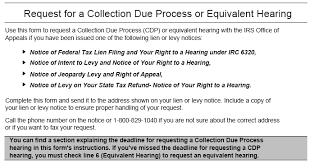Final Report issued on September 16, 2019, Highlights of Reference Number: 2019-30-069 to the Commissioner of Internal Revenue.
When a taxpayer that has a filing requirement fails to file a tax return, the IRS is authorized under Internal Revenue Code Section 6020(b) to determine and assess a tax liability. For certain business nonfilers with unfiled employment tax returns, the IRS can systemically prepare a substitute return using the Automated 6020(b) [A6020(b)] program.
The Nonfiler Case Creation Process For Business Returns Has Been Declining Since FY 2011 And Virtually Stopped In October 2016 Due To Significant Reductions In Staffing.
The creation of fewer nonfiler cases resulted in a reduction of potential inventory to select work from for the A6020(b) program. Because of resource limitations, A6020(b) program new case starts have been declining since FY 2014 and were halted November 7, 2016. As a result, the A6020(b) program secured fewer returns and collected less revenue on a portion of employment tax nonfiler cases during the time period that new cases were not started.
High-dollar nonfiler employment tax cases currently have to be manually assigned to the A6020(b) program to be worked, due to a low dollar threshold used for systemic assignment. If the IRS removed the dollar threshold associated with systemic and manual case selection, hundreds of thousands of high-dollar cases could be worked by the A6020(b) program.
TIGTA identified 243,210 standalone nonfiler employment tax modules (taxpayers with unfiled tax returns but no balances due) that were assigned to other Collection functions as of January 2019.
If The IRS Assigned The Top 86,554 Modules To The Program, Based On The Highest Dollar Proposed Assessments, The IRS Could Potentially Assess More Than $10.2 Billion and Potentially Collect More Than $3.3 Billion.
From A6020(b) cases closed between FYs 2011 and 2017, TIGTA also identified 6,784 cases for which the A6020(b) program did not post a tax assessment when it should have, resulting in a loss of proposed assessments of $19.7 million and potentially $6.4 million of revenue collected.
TIGTA made six recommendations, including that the IRS consider:
-
allocating additional resources to the A6020(b) program for FY 2020;
-
updating the systemic and manual case selection criteria to work high-dollar cases;
-
transferring the highest dollar standalone nonfiler inventory from other Collection functions to be worked by the A6020(b) program; and
-
implementing system fixes to ensure that A6020(b) default assessments post as they should.
In response to the report, IRS management agreed with three of six recommendations and plans to take corrective action. Click her to view the report, including the scope, methodology, and full IRS response.
Have Payroll Tax Problems?
Contact the Tax Lawyers at
Marini & Associates, P.A.










